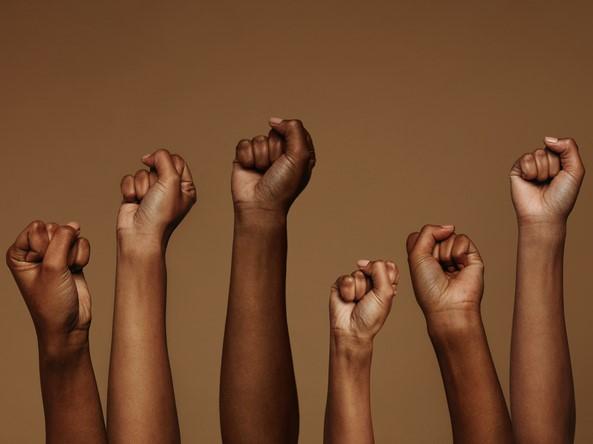
How to tell if your university is making a genuine effort to increase diversity

According to the Higher Education Statistics Agency, only 1 per cent of UK professors are Black. This is woeful under-representation. Given that more than 4 per cent of the UK is Black, the number of Black professors would have to quadruple before becoming representative.
Universities say they are trying to solve this problem. From Aberdeen to York St John, they have “fully committed to equality, diversity and inclusion” and are “dedicated to providing an inclusive, accessible and welcoming environment” (quotes taken from the above’s websites). Universities all have “equality networks”, “diversity blogs”, “diversity leads” or some combination of these. Yet the problem persists. The statistics say the number of Black professors is increasing very slowly or not at all.
I am one of the very few Black professors in the UK. Furthermore, I am a social psychologist with expertise in detecting and reducing bias. So, I’d like to offer my opinion on how to increase diversity in UK academia.
- Why higher education should take an EDI lesson from Kendrick Lamar
- THE podcast: an interview with Ruth Simmons, president of Prairie View A&M
- Action to improve diversity and inclusion for Black students and staff
Crucially, acknowledge that bias pervades the university system. I can offer some of my own experiences. Even as a professor – the highest rank in academia – I am still mistaken for a PhD student – the lowest rank. When I moved into my last office someone flatly refused to believe that the office was mine and tried to store equipment in it. In staff areas I have repeatedly been told that these areas were for staff only, with the clear implication that I should leave. In four of the five times that I applied for a promotion, I was told by senior colleagues that I wasn’t ready and shouldn’t apply, only to be evaluated as more than ready once I actually applied. Once, a member of the promotion assessment panel declared that I had not in fact been awarded one of my grants, even though the grant winners had been publicly announced months earlier. It took a year of appeals to reverse that decision. Experiences like these could easily slow down, discourage and/or eliminate Black academics.
But this goes far beyond personal experience; the science is clear about bias in academia. For example, in 2015, Milkman and colleagues sent more than 6,500 emails to professors while pretending to be prospective doctoral students. The messages were identical, except that the names of the students were varied to sound like White versus ethnic minority names. Despite the identical messages, the researchers found that White names (particularly White male names) got significantly more responses than any other category.
Additionally, in 2020, Eaton and colleagues (including myself) sent 251 CVs to large research universities and asked the members to rate the candidates for their competence and hireability. The CVs were, of course, equivalent except for the apparent ethnicity (and gender) of the candidates. Despite these equivalent CVs, White people (again, particularly White men) were judged as significantly more competent and hireable than ethnic minorities.
And this bias isn’t restricted to staff members. In 2010, Bavishi and colleagues recruited 375 students preparing to go to university and showed them the CVs of some of their potential future professors. The professors were, of course, all equivalent except for their apparent gender and ethnicity. As expected, the students judged the supposedly Black professors as less competent, less legitimate and lower in interpersonal skills than the identically qualified White professors – chilling results considering how student evaluations are used for promotion applications.
Many other studies such as these show that Black academics are judged more harshly and treated less favourably than White academics even when they perform just as well or (sometimes) even better. These effects are serious and widespread and won’t be undone by good intentions, a blog or a few days of celebration in October.
I am sometimes asked what universities should do to change things. Increasingly, I respond that very few universities are making any genuine effort at all. In academia we know what genuine effort looks like. Take, for example, publication: (1) we all have specific, measurable goals (how many publications each academic/department is expected to produce over a given timeframe); (2) we have clear systems of accountability (we know exactly who is responsible for these publications/lack thereof); (3) there are clear consequences for performance (with insufficient publications you won’t be promoted, you may be fired and your department will get fewer resources).
In contrast, when it comes to diversity in universities, there are usually no specific measurable goals, no systems of accountability and no consequences for accomplishing them or failing entirely. Can your institution demonstrate these three specific targets on diversity: goals; clear accountability; and clear consequences? If yes, then it’s probably making a genuine effort. If no, then it’s probably not.
Universities can also remove (or modify) evaluation systems that are scientifically shown to be biased (for example, student evaluations). They can remove ambiguity around promotion criteria that allows bias to creep in when we decide who is “ready”. They can impose real consequences for behaviour (for example, by assessors) that unfairly hinders the careers of Black academics.
It’s wishful thinking to imagine that we can increase diversity by merely encouraging individuals to be different. The research shows that this is a big, systemic problem. It needs big, systemic solutions. Encourage your institution to employ these systemic solutions. If they do, diversity will increase. If they won’t, maybe they’re not really trying to increase diversity at all.
Keon West is a social psychologist at Goldsmiths, University of London. His audiobook original, SKEWED: Decoding Media Bias, co-authored with Caryn Franklin, can be downloaded from Audible.
If you would like advice and insight from academics and university staff delivered direct to your inbox each week, sign up for the Campus newsletter.
Additional Links
For more resources on this topic, go to our collection Being Black in the academy or our spotlight on how universities can boost staff diversity.


